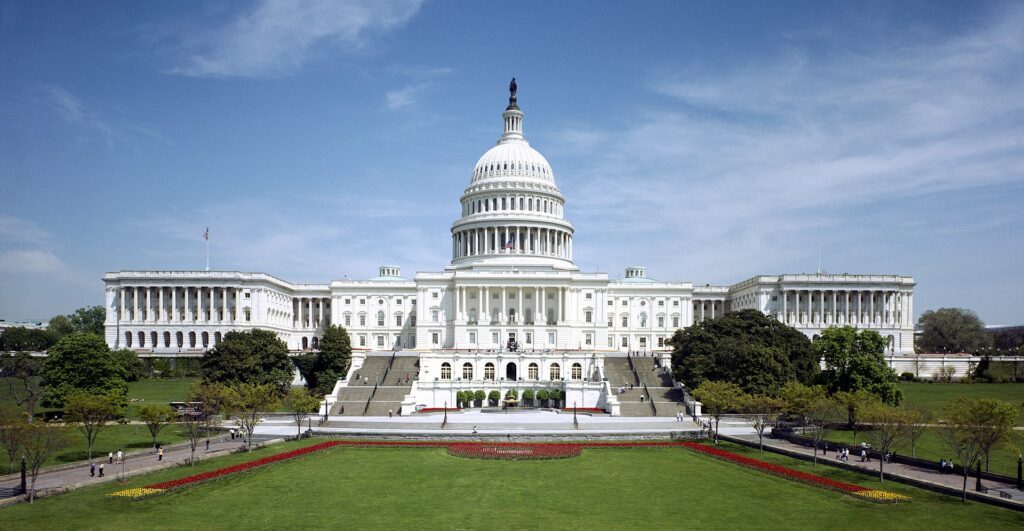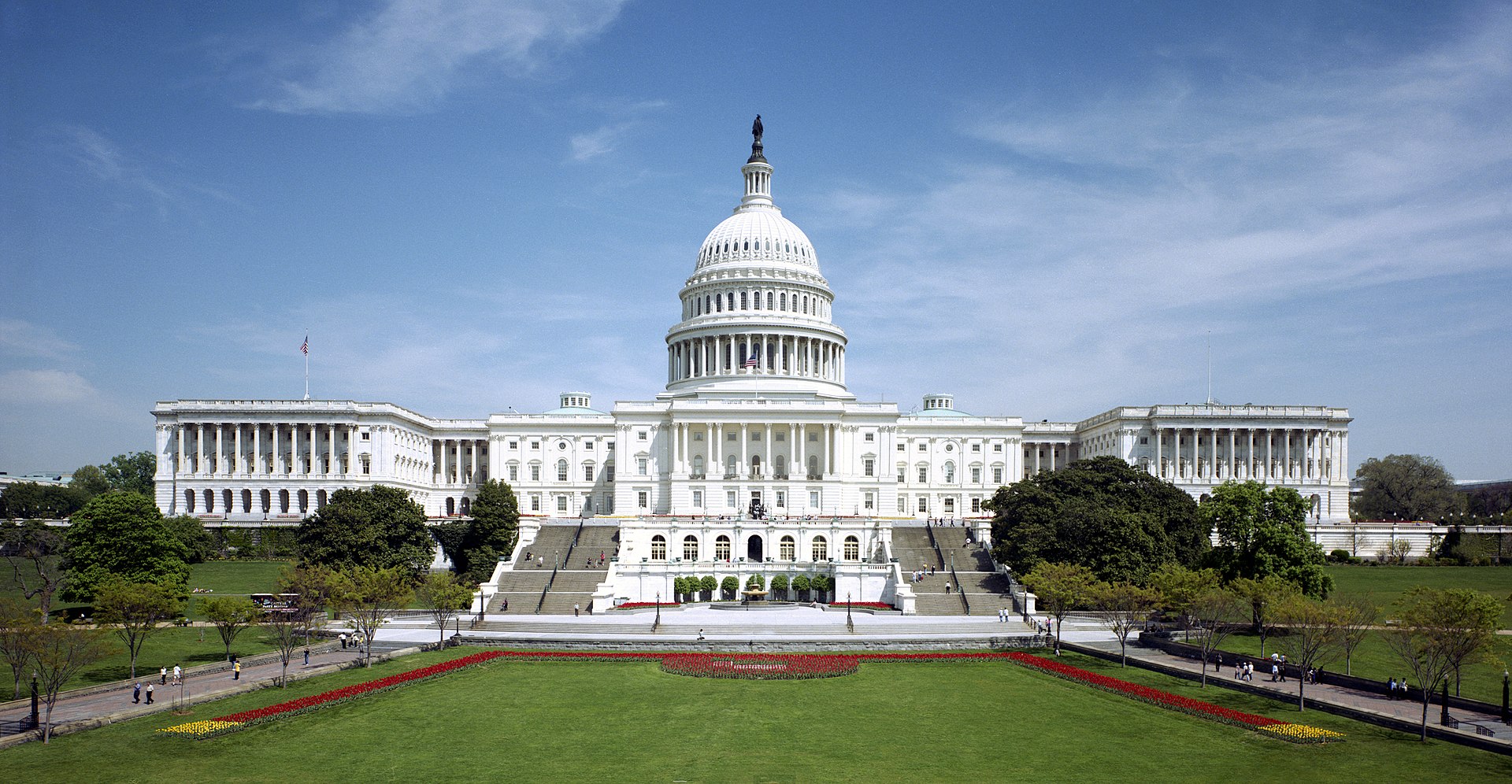Congress Wants YOU to Pay for Airport Maintenance–But Should You?

While much attention is driven towards end-of-year hearings and special investigations on Capitol Hill, a lesser-known bill is working its way through Congress and could force you to pay more in ticketing fees if passed. The Investing in America: Rebuilding America’s Airport Infrastructure Act wants to give airports the ability to name their own Passenger Facility Charges–but should they?
This holiday season, many families will gather together for celebrations and discuss the current state of affairs. One such topic that may come up is politics: who is right, who is wrong, and who said what in which hearing.
However, smart travelers should be discussing a much more important topic: how much your airfare could increase if the Investing in America: Rebuilding America’s Airport Infrastructure Act passes into law.
Introduced in the Summer of 2019, the bill looks to increase airport revenue options through two different means: removing the cap on Passenger Facility Charges, while reducing grant totals to airports.
Why Passenger Facility Charges Are Back in Congress
The issue of raising Passenger Facility Charges (PFCs) dates back to 2015, when Airlines For America first came out against the topic of raising the fees assessed to travelers per ticket. One year later, the FAA Reauthorization Bill sought to add PFCs to “small hub” and “medium hub” airports, allowing even more airports to tack the fees onto passenger tickets.
In the justification for the bipartisan legislation, sponsor Thomas Massie (R-KY) claimed his version of the bill would give airports more “flexibility” in funding their own construction projects. That is: without a federal cap on PFCs added to tickets, airport authorities could decide how much to add per ticket, in order to ensure their budgets line up.
“Removing the PFC cap and allowing airports to collect more of their own revenue from users reduces airports’ dependency on federal grants and taxes,” Rep. Massie said in a press release. “This bill would let airports – not the federal government – decide what to charge customers who use their facilities so they can increase investments to improve passenger experience.”
On the other side, the total amount of grants set aside for airports would be decreased. If passed, the bill would reduce the appropriated grant funding to $2.95 billion for fiscal years 2020 through 2023.
Should Flyers Shoulder the Bill for Airport Improvements?
By and large, most airport authorities are public institutions, meaning they benefit from tax funds paid by the public, along with federal improvement grants. These taxes are in addition to operating fees paid by airlines and PFCs collected by carriers on behalf of airports. Should passengers be asked to pay even more?
In an editorial written in The Hill by John Breyault, vice president of public policy, telecommunications and fraud for the National Consumers League, the argument is no. In their math, they note over $165 billion was already paid to airports as a result of PFCs since 2009, which is on top of the $14 billion already reserved for improvements.
“On its face, legislation to remove the cap on PFC fees may seem like a marginal price to pay,” Breyault writes. However, if the PFC charge were doubled, as some have proposed, a family of four would pay $144 in charges when travelling, an increase of $72. This will burden budget-conscious consumers and families who rely on less expensive tickets at airports across the country.”
Where Does the Bill Go From Here?
Currently, the bill sits in committee, waiting for the House Subcommittee on Aviation to hold hearings and determine if the bill should move forward to the Congressional lower chamber. Until then, it sits in limbo, waiting for action.
Should passengers pay more? Should airlines pay more? There is no easy answer. But considering the number of funding methods airports have, funding improvements should sit on the airport’s executives, board of directors and airlines, not flyers.























I see nothing wrong with this. Why shouldn't you pay for something you use?
@Jon_R, @tromboneboss, @alexmyboy: The Airport and Airways Trust Fund is funded by user fees, not by general taxation. The people who use the resources *ARE* paying for it. That's the theory, anyway. In fact, Congress is NOT spending the Trust Fund, because having that money sitting in their billfold makes the deficit numbers look better. This means they have to find other people to rob to pay for the necessary work, since they don't want to spend the money that is already there for that exact purpose.
I am not an American (actually British), but I would like to point out that when I buy my air ticket from SAUDIA (Saudi Arabian Airlines), as I work in Riyadh, there, as plain as daylight on my breakdown of fees and taxes, is the item 'Airport Building Charge' at US$25 more or less in local currency. Certainly, they are rebuilding/modernising King Khalid Int'l Airport here, but perhaps it is a general charge for all Saudi airports in general. Of that I am not aware However through my air tickets, I AM indeed paying for the airport modernisation. I personally do not see a problem with this. I am a regular user, so why should I not contribute to it's costs. If one believes this is unfair, then it will come from one's taxes anyway, so you WILL pay at the end of the day. That's a little more different here, as there are no personal income taxes, so in this way it's charged as a fee.
Good. The people using the resource should pay for it As much as possible. The passenger and the airline are the users so put the burden on them vs the overall tax payer. If you put it on the airline they will pass it to passengers so either way.
The goal here is to enable congress to continue collecting the taxes and loading them into the trust fund, but then not use those funds for their intended purpose. Another congressional end around to cheat the system to fund their pet projects and make it look like they're not creating even more deficits. This is crazy talk.